The Soil CRC Knowledge Sharing Project extension series is produced and presented by Simon Kruger, project grower group participant and Project Communications Officer at West Midlands Group in Western Australia.
In this four-part series, Simon sits down with other participating grower group representatives to reflect on some of the key learnings from the Soil CRC's Knowledge Sharing Project.
In this episode Simon chats to AIR EP’s Joshua Telfer about shifting soil and land management narratives.
The project was led by Dr Hanabeth Luke from Southern Cross University. For more information visit www.soilcrc.com.au.

The Soil CRC Knowledge Sharing Project extension series is produced and presented by Simon Kruger, project grower group participant and Project Communications Officer at West Midlands Group in Western Australia.
In this four-part series, Simon sits down with other participating grower group representatives to reflect on some of the key learnings from the Soil CRC's Knowledge Sharing Project.
In this episode Simon chats to his West Midlands Group colleagues Dr Nathan Craig and Melanie Dixon about sharing knowledge and engaging with farmers at their Pasture Walk events.
The project was led by Dr Hanabeth Luke from Southern Cross University. For more information visit www.soilcrc.com.au.

The Soil CRC Knowledge Sharing Project extension series is produced and presented by Simon Kruger, project grower group participant and Project Communications Officer at West Midlands Group in Western Australia.
In this four-part series, Simon sits down with other participating grower group representatives to reflect on some of the key learnings from the Soil CRC's Knowledge Sharing Project.
In this episode Simon chats to Central West Farming System’s Diana Fear about engaging with farmers in challenging times.
The project was led by Dr Hanabeth Luke from Southern Cross University. For more information visit www.soilcrc.com.au.

The Soil CRC Knowledge Sharing Project extension series is produced and presented by Simon Kruger, project grower group participant and Project Communications Officer at West Midlands Group in Western Australia.
In this four-part series, Simon sits down with other participating grower group representatives to reflect on some of the key learnings from the Soil CRC's Knowledge Sharing Project.
In this episode Simon chats to Birchip Cropping Group’s Kelly Angel about reactive events and strategic engagement.
The project was led by Dr Hanabeth Luke from Southern Cross University. For more information visit www.soilcrc.com.au.

In this episode of Paddock Chat we sit down with Justin Laycock, who is a Research Scientist at the Department of Primary Industries and Regional Development.
Justin speaks about how DPIRD and growers across the Wheatbelt have been collaborating to transform ground cover management as we know it.
If you would like more information, contact Justin at justin.laycock@dpird.wa.gov.au.
Resources:
Geoglam RaPP
NRInfo
National Maps (previously Terria Cube)
Terria Cube How To Guide
VegMachine

In this episode of Paddock Chat we sit down with Rabobank Farm Inputs Analyst Vitor Cacula Pistoia to discuss the current land market in Australia.
Vitor provides insights into how land values are tracking across the country, the reasons behind the current trends and more importantly, how land values compare in the West Midlands region. Vitor also provides an outlook for the future and what we might expect moving forward.
If you missed our earlier episode with Rabobank Senior Strategist for Global Economics & Markets - Australia/New Zealand, Ben Picton, you can listen here.
If you would like to contact your local Rabobank branch, you can find them via their website, at the Moora Office - 14A Dandaragan Street, or call them on 9690 8500.
We hope you enjoy this episode. If you would like to learn more about the West Midlands Group and how we help support our local farmers and the sustainable future of Agriculture, visit our website at www.wmgroup.org.au or email us at admin@wmgroup.org.au

In this week’s episode of Paddock Chat WMG Executive Officer Nathan Craig chats with Bayer Crop Science's Matt Willis about successful strategies for fenceline weed management.
Matt speaks about historical applications and management of paddock fencelines, the continual increase in glyphosate resistance, new alternatives and trials with Bayer's Alion©, best practice and the 2023 WMG Spring Field Day Bayer Fenceline Trial.
We hope you enjoy this episode, if you would like to learn more about the West Midlands Group and how we help support our local farmers and the sustainable future of Agriculture, visit our website at www.wmgroup.org.au or email us at admin@wmgroup.org.au

"Exploring Global Economics & Markets with Ben Picton: Rising Interest Rates, Consumer Trends, Social License, the Pandemic's Impact and more"
Senior Strategist for Global Economics & Markets in the Australia/New Zealand region for Rabobank, Ben Picton, delves into the current economic landscape to cover several key areas impacting the Agricultural industry.
If you would like to contact your local Rabobank branch you can find them via their website https://www.rabobank.com.au/ or in the Moora Office at 14A Dandaragan Street, or you can reach them on 9690 8500.
We hope you enjoy this episode. If you would like to learn more about the West Midlands Group and how we help support our local farmers and the sustainable future of Agriculture, visit our website at www.wmgroup.org.au or email us at admin@wmgroup.org.au.

In this episode of Paddock Chat, we speak with Anna Cornell from NACC NRM about the 'Growing Great Ground' project. The project aims to combat wind erosion and enhance on-farm biodiversity in the northern agricultural region.
Anna, who has a personal connection to the region, shares her passion for making a positive impact on her community and the environment.
Anna discusses how workshops and other events have played a crucial role in educating producers about new technologies and sustainable practices. These activities have contributed to a wider adoption of effective strategies, resulting in increased ground cover and native vegetation.
The 'Growing Great Ground' project, in collaboration with the Northern Agricultural Catchments Council (NACC) and the Australian Government’s Regional Land Partnerships initiative of the National Landcare Program, is dedicated to fostering sustainable land management practices and promoting biodiversity conservation, creating a lasting positive impact on the region.

In this episode of Paddock Chat, WMG Executive Officer Nathan Craig sat down with Reagan Manns from RSM Australia to talk through the federal budget handed down on 9 May 2023.
While this was considered a pretty tame budget, there were a few tweaks that snuck in at the last minute, including updates to the instant write-off threshold and taxing of profit in superannuation funds.
For more information on this topic or to contact Reagan directly, reach out to Reagan.Manns@rsm.com.au or call 9652 2380.
Earlier podcast episodes with RSM can be found here
https://www.buzzsprout.com/1067260/12115179

In this week’s episode of Paddock Chat we speak with agronomist Nick Eyres about his journey to starting his own agronomy business, Greenough Specialty Ag, and how it has allowed him to expand the research side of his role. Nick speaks highly about the importance of increasing protein development in farming systems and tackling other common soil health issues in the northern ag region.
We hope you enjoy this episode, if you would like to learn more about the West Midlands Group and how we help support our local farmers and the sustainable future of Agriculture, visit our website at www.wmgroup.org.au or email us at admin@wmgroup.org.au
To stay up to date with these topics and to follow Nick’s work head over to Twitter @eyres_N or contact Nick at gsaconsulting@outlook.com.au

It is widely recognised across the WA Wheatbelt that crops and pastures need large amounts of Potassium (K) to achieve maximum plant growth. Most of the agricultural soils in WA are low in K and this means plants mainly rely on getting K from the soil through fertiliser application and recycling of plant-available K from deeper in the soil layers.
This episode explores potassium nutrition in the West Midlands region with Summit Fertilizers Area Manager, Brett Beard, and WMG Mixed Farming Systems Officer Melanie Dixon. We speak about how to understand what’s going on in your soil, why potassium has been forgotten in the past, and the results of Summit's long-term potassium trials in the region.
The West Midlands Group would like to thank Summit Fertilizers for their long term support as a Diamond sponsor.
You can contact Brett for more information at:
0429900607
bbeard@summitfertz.com.au

The Good, The Bad and the Fungi: A Look at Soil Pathogens
This episode takes a closer look at the microscopic world of soil pathogens with Dr Dominie Wright, Senior Laboratory Scientist in DDLS and leader of the DPIRD plant diagnostic group.
Dominie joins WMG EO Dr Nathan Craig and WMG Mixed Farming Systems Officer Melanie Dixon to discuss how growers can better identify and manage soil pathogens (known more commonly as root diseases) on their property. This conversation is supported by the key findings of the recently completed WMG project "Soilborne Pathogen Identification and Management Strategies for Winter Cereals". The project gave a local perspective on the effectiveness of current break crop control options.
This project was made possible with support from @GGA_WA
and @DPIRDWA, and is a @theGRDC
investment.
If you are keen to learn more about this topic, please don’t hesitate to get in touch with us at admin@wmgroup.org.au or call 9651 4008
You can become a West Midlands Group member today by visiting our website https://wmgroup.org.au

WMG EO Nathan Craig interviews WMG’s Beef Industry Development Officer Erin O’Brien on her BeefLinks Backgrounding project. This episode explores the findings of the project, and what’s in store for the future.
The project is part of a more extensive BeefLinks Program, funded by Meat & Livestock Australia through the Donor company and University of Western Australia. This program is a four-year research partnership that aims to drive an integrated and complementary R&D program for northern and southern production systems across WA to achieve profitable, consistent and sustainable beef yields matched to consumer expectations.
Today’s episode covers:
- Insights from the project's findings
- What the data collected revealed about cattle performance through the supply chain
- The role backgrounding plays in the supply chain
- Key tools that producers now have to make more informed decisions
- Key steps to move forward and improve management styles
- How WMG plans to continue to work and support producers moving forward
We hope you enjoy this episode, if you have any questions or would like to get in touch with the West Midlands Group please email admin@wmgroup.org.au or call 9651 4008

This episode explores the current challenges for weed control in the Northern Agricultural Region of Western Australia from the view of Matt Willis, Market Development Agronomist with Bayer Crop Science. Newly appointed Director of the Australian Herbicide Resistance Initiative (AHRI) Associate Professor Ken Flower joins the discussion to outline how collaboration between all industry stakeholders is needed to develop a more robust and diverse farming system that has a lower reliance on herbicides to do the heavy lifting for weed control.
SPOILER: The harnessing of technology, particularly variable rate application and the ability to detect the current and future location of weeds in the paddock features strongly in this episode!
The West Midlands Group would like to acknowledge Bayer Crop Science as a long-term sponsor of the group.
Resources :
Ken Flower UWA ken.flower@uwa.edu.au
Australian Herbicide Resistance Initiative
Matt Willis Bayer CropScience
matt.willis@bayer.com

Diving into how to take control of livestock depredation on your farm
WMG host Erin O'Brien dives into Wild Dog control and the need for proactive management.
In this episode WMG host Erin O'Brien dives into what are the signs of wild dog activity and how to minimise stock depredation with guests Greg Mifsud National Wild Dog Management Coordinator from Invasive Species Solutions and Paul Pitaro Lead LPMT from Vertebrate Pest Management.
Greg and Paul explain why it's crucial to have a baiting program, how you can save time and money by being proactive in your approach to wild dog and fox control and how to reduce the risks around baiting when you have working dogs.
They go on to outline the relationship between calicivirus and why this is the opportune time to increase your baiting activity, as well why it s critical to approach pest control as a "community" issue and not as an isolated activity.
We hope you enjoy this episode as much as we did.
The following resources are available for landholders
https://pestsmart.org.au/toolkits/wild-dogs/
You can contact Greg Mifsud at greg.mifsud@invasives.com.au or call 0448189909
http://www.vpma.com.au/contact.htm
Contact Paul Pitaro ( based in Dongara) at paul@vpma.com.au or call 0438 337 642

Did you know that the rules around asset depreciation are changing on the 1 July 2023?
With the $1000 write-off threshold being reintroduced next financial year, RSM Principal Reagan Manns joins WMG Executive Officer Nathan Craig to find out what this could mean for your business when buying and replacing machinery in the coming years.
Find out the questions you need to ask to avoid paying more tax than you need to!
This episode covers:
*How to structure your farm business to avoid a higher tax bill
*Asset depreciation schedules
*Replacement schedules
*Risk of creating income when you don't need to
To learn more about this topic in relation to your farm business, you can reach out to Reagan at Reagan.Manns@rsm.com.au or call 9652 2380.
RSM Australia is a proud long-term sponsor of the West Midlands Group.
West Midlands Group is proud to bring you another episode of Paddock Chat.
Our members receive lots of great information just like this - to join the WMG community go to www.wmgroup.org.au
We are also very socially active! Follow us on Twitter @WMG_WA or Facebook @westmidlandsgroup

Episode 4, and the final in our collaboration series focusing on precision ag and mental wellbeing in partnership with the Society of Precision Agriculture Australia and Mallee Sustainable Farming.
Tanya Lehman wears many hats and is well known in her community for her work in supporting regional communities, helping them to truly thrive. Her latest role sees her helping to support a new project coaching a new group of ‘Vocal Locals’ in the community that are there to share their experiences of how they work on taking care of their mental health and wellbeing especially in times of stress.
In this episode Tanya joins MSF’s Jay Cummins to talk about her involvement in this forward-thinking project and to share her valuable insights and knowledge in this incredibly important but often underrepresented space.
The Vocal Locals project is led by the University of South Australia, promoting the ifarmwell program with funding from the FRRR Future Drought Fund.
If you've missed the episode 1 in this series, listen to it HERE
If you've missed the episode 2 in this series, listen to it HERE
If you've missed the episode 3 in this series, listen to it HERE
This podcast has been made possible by SPAA with funding from the FRRR Future Drought Fund.
“SPAA is Australasia’s leading independent advocate and facilitator for increased research, extension and adoption of precision agriculture, delivering industry wide value across different sectors.”
SPAA would also like to acknowledge their principal sponsors: John Deere, CNHi, Manutec, and Elders.

Episode 3 in our collaboration series focusing on precision ag and mental wellbeing in partnership with the Society of Precision Agriculture Australia and Mallee Sustainable Farming.
Tim Paschke is a South Australian northern Mallee farmer based at Lowbank who farms in one of the most marginal rainfall zones for cropping in Australia, and for that matter the World. Tim is currently an ambassador and advocate for the Vocal Local project, an initiative of the ifarmwell program.
ifarmwell is a free online tool kit to help farmers cope effectively with life’s challenges and get the most out of every day, regardless of the circumstances they face and has been designed based on what Australian farmers have said they want and what research shows will help.
In this episode Tim joins MSF’s Jay Cummins to share his experiences in this project and about life farming on the edge. The Vocal Locals project is led by the University of South Australia, promoting the ifarmwell program with funding from the FRRR Future Drought Fund.
If you've missed the episode 1 in this series, listen to it HERE
If you've missed the episode 2 in this series, listen to it HERE
This podcast has been made possible by SPAA with funding from the FRRR Future Drought Fund.
“SPAA is Australasia’s leading independent advocate and facilitator for increased research, extension and adoption of precision agriculture, delivering industry wide value across different sectors.”
SPAA would also like to acknowledge their principal sponsors: John Deere, CNHi, Manutec, and Elders.

Farmer and consultant Felicity Turner joins Mallee Sustainable Farming’s Tanja Morgan, providing an insight into her work in supporting farmers in the Mallee and Upper Southeast region of SA in relation to integrating Precision Ag (PA) systems into their farming operations.
Felicity shares her experiences in working with farming families, including the role of PA in helping to guide and make informed decisions.
This is the second episode in our collaboration series focusing on precision ag and mental wellbeing in partnership with the Society of Precision Agriculture Australia (SPAA) and Mallee Sustainable Farming.
If you've missed the first episode in this series, listen to it HERE.
This podcast has been made possible by SPAA with funding from the FRRR Future Drought Fund.
“SPAA is Australasia’s leading independent advocate and facilitator for increased research, extension and adoption of precision agriculture, delivering industry wide value across different sectors.”
SPAA would also like to acknowledge their principal sponsors: John Deere, CNHi, Manutec, and Elders.

This episode marks the beginning of a 4-part series of episodes West Midlands Group are releasing in collaboration with the Society of Precision Agriculture Australia and Mallee Sustainable Farming.
SPAA is Australasia’s leading independent advocate and facilitator for increased research, extension and adoption of precision agriculture, delivering industry wide value across different sectors.
MSF are a grower group bringing farmers and researchers together to build more efficient, profitable and sustainable farming businesses in the low-rainfall Mallee region across New South Wales, Victoria and South Australia.
Consultant and farmer Peter Treloar joins MSF’s Jay Cummins, sharing his practical experiences in helping Mallee farmers navigate their on-farm development and application of precision ag systems.
Peter and Jay’s insightful conversation hits on many typical on-farm issues in precision ag and answers some key questions such as what equipment to use and how to get it to work in the best possible way to help make better informed decisions and reduce some of the stresses in farming decisions.
This podcast has been made possible by SPAA with funding from the FRRR Future Drought Fund.
“SPAA is Australasia’s leading independent advocate and facilitator for increased research, extension and adoption of precision agriculture, delivering industry wide value across different sectors.”
SPAA would also like to acknowledge their principal sponsors: John Deere, CNHi, Manutec, and Elders.

In this episode WMG Comms Officer Simon Kruger & Mixed Farming Systems Officer Melanie Dixon are joined by Geoff Moore, Research Scientist at the Department of Primary Industries and Regional Development.
When grasshopper issues first arose in the 2021 season in the West Midlands region, Geoff was the first respondent on the ground with the WMG team and our affected members. Geoff specialises in legumes, pastures, livestock feedbase and groundcover among many things, and chats with us as part three in our series focusing on positive producer responses to 2021 seasonal grasshopper and groundcover issues.
After monitoring the areas of greatest risk in our region and producing several case studies investigating the response to grasshopper, groundcover and soil erosion, Geoff is able to provide some more background on both producer and department response, as well as detailing several key short, mid and long term tactical and strategic options for dealing with groundcover issues.
Geoff and DPIRD have kindly provided some links to extra resources for producers who may be interested in the topics covered during the conversation or those that are hoping to mitigate similar problems in this and coming seasons.
Useful Links:
https://www.agric.wa.gov.au/pastures/stabilising-sandy-pasture-paddocks-low-groundcover
- Tagasaste management with Bob Wilson
- Pasture Cropping - An introduction to the concept and EverCrop project
- Pasture Cropping - Experiences of innovative growers
- Pasture Cropping - Results from the Moora focus site with David Ferris
- Key steps for successful establishment of sub-tropical grasses with Phil Barrett-Lennard
- Identifying sub-tropical grass seedlings
- Sub-tropical grass establishment - machinery demonstration
- Producer perspective
- Assessing sub-tropical grass establishment
- Saponins and grasses
- Ketosis in cattle with Marion Seymour

Communications Officer Simon Kruger and Mixed Farming Systems Officer Melanie Dixon recently sat down with local farmer and WMG member Don Bradshaw.
Don is the Manager at ‘Jutomara Park’, a grazing operation running cattle only, predominantly brought down from Yanrey Station near Exmouth for backgrounding.
Recalling a series of events over the previous seasons including the effects of cutworm, unseasonal rainfall and increased grasshopper numbers, Don noticed a perfect ‘low groundcover’ storm was developing in the early stages of the 2021 season.
Don's timely and decisive management has turned bare patches and paddocks with low groundcover into highly productive pastures, and not only has he placed 'Jutomara Park' in a great position for the coming seasons, but he is also one of the farmers highlighted in a DPIRD grower focus case study on stabilising sandy pasture paddocks with low groundcover in the West Midlands region.
https://www.agric.wa.gov.au/pastures/stabilising-sandy-pasture-paddocks-low-groundcover
Not only is this story an excellent example of proactive and practical responses to groundcover issues, but it is also a perfect example of the value of local knowledge and strength of community ties in the region.
This episode is the second in a series of episodes that focus on positive responses to low groundcover within the West Midlands region, so be sure to look out for the next episode featuring Geoff Moore of DPIRD.

Communications Officer Simon Kruger and Beef Industry Development Officer Erin O’Brien recently sat down with local farmer and WMG member Steele Rudd.
Steele runs ‘Our Selection’ at Eganu, a mixed enterprise farm, consisting of a continuous cropping program combined with a cattle operation rotationally grazed across improved perennial and annual pastures.
Steele’s proactive response to high grasshopper numbers and an increase in bare patches in the 2021 season has paid dividends, and not only has he seen some great results from strategic oversowing of cereals and perennials management, but he is also one of the farmers highlighted in a recently released DPIRD focus case study on stabilising sandy pasture paddocks with low groundcover.
https://www.agric.wa.gov.au/pastures/stabilising-sandy-pasture-paddocks-low-groundcover
This episode marks the beginning of a series of episodes that focus on positive responses to low groundcover within the West Midlands region, so be sure to look out for the upcoming episodes featuring Don Bradshaw of Jutomara Park and Geoff Moore of DPIRD.

It is believed that ancient South American cultures would use a rudimentary form of biochar to increase soil productivity thousands of years ago. Fast forward to the present day and the word Biochar is used to describe a substance that looks almost like charcoal, but that is actually biomass carbonized and made into a solid material, used in a multitude of ways from filtration to improving soil function and fertility.
One of the key impacts of climate change is its inevitable threat to the agricultural industry and food security as a whole. As the focus of WMG Cropping Systems Officer Md Zahangir Hossain’s recently completed PhD, Biochar’s use as a soil amendment has the potential benefits of bigger yields, healthier soils, lower acidity levels, richer microbial activity, and better water retention to name just a few.
This episode forms an introduction of sorts to one of our newest team members Zahangir, while Executive Officer Nathan Craig also joins the conversation, bringing his technical expertise and knowledge to help us delve deeper into Biochar as a soil amendment, its benefits and limitations, and how WMG will be innovatively utilising it within the Future Carbon Project.
For more information on Biochar, the Future Carbon Project or any of Zahangir’s work, be sure to get in contact with us at comms@wmgroup.org.au

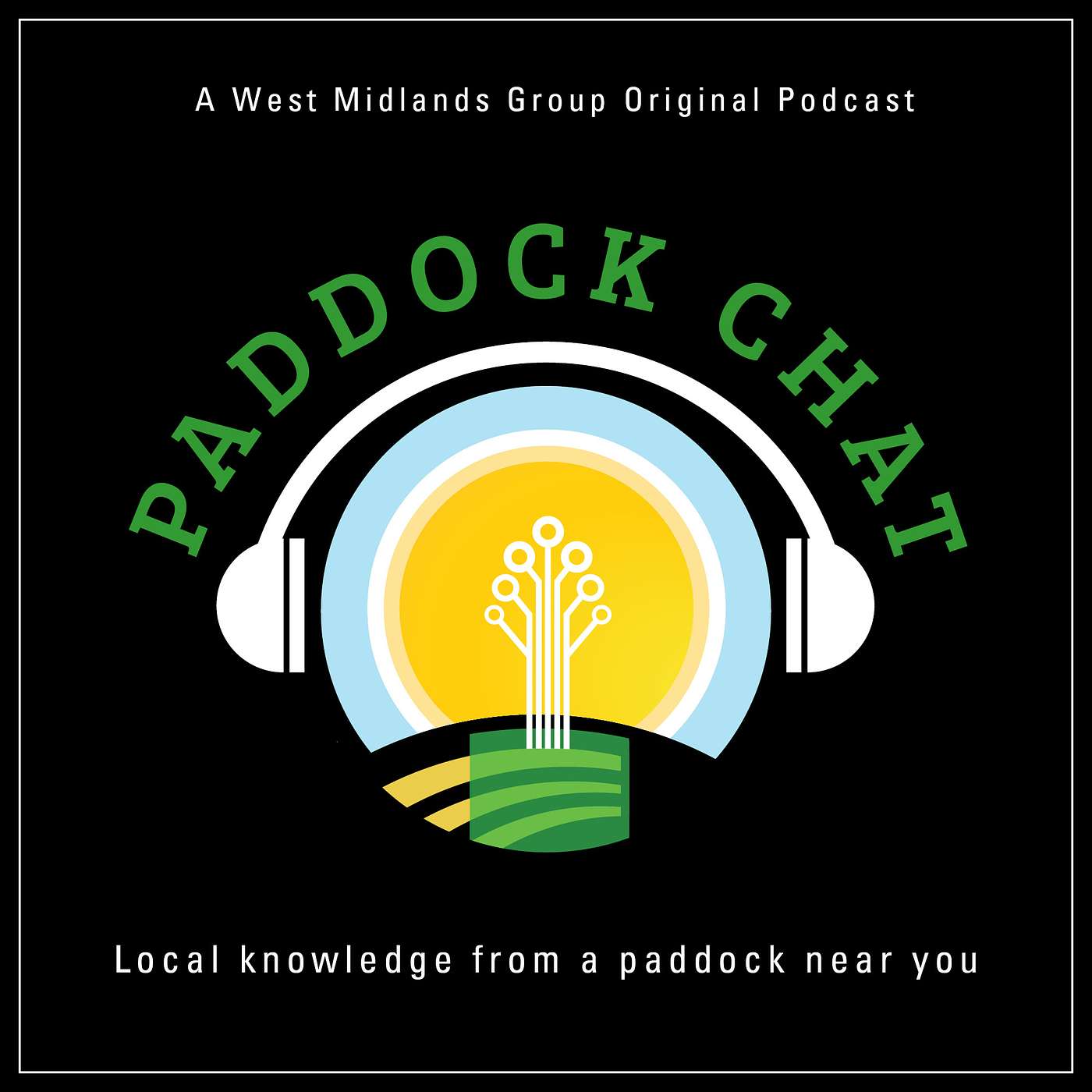 Grower Group Conversations (Ep.4) - Shifting soil and land management narratives FEAT. Joshua Telfer (AIREP)
25:08
Grower Group Conversations (Ep.4) - Shifting soil and land management narratives FEAT. Joshua Telfer (AIREP)
25:08
 Grower Group Conversations (Ep.3) - Knowledge sharing with the Pasture Walk Series FEAT. Nathan Craig & Melanie Dixon (WMG)
16:09
Grower Group Conversations (Ep.3) - Knowledge sharing with the Pasture Walk Series FEAT. Nathan Craig & Melanie Dixon (WMG)
16:09
 Grower Group Conversations (Ep.2) - Engagement with farmers in challenging times FEAT. Diana Fear (CWFS)
16:40
Grower Group Conversations (Ep.2) - Engagement with farmers in challenging times FEAT. Diana Fear (CWFS)
16:40
 Grower Group Conversations (Ep.1) - Reactive events & strategic engagement FEAT. Kelly Angel (BCG)
16:27
Grower Group Conversations (Ep.1) - Reactive events & strategic engagement FEAT. Kelly Angel (BCG)
16:27
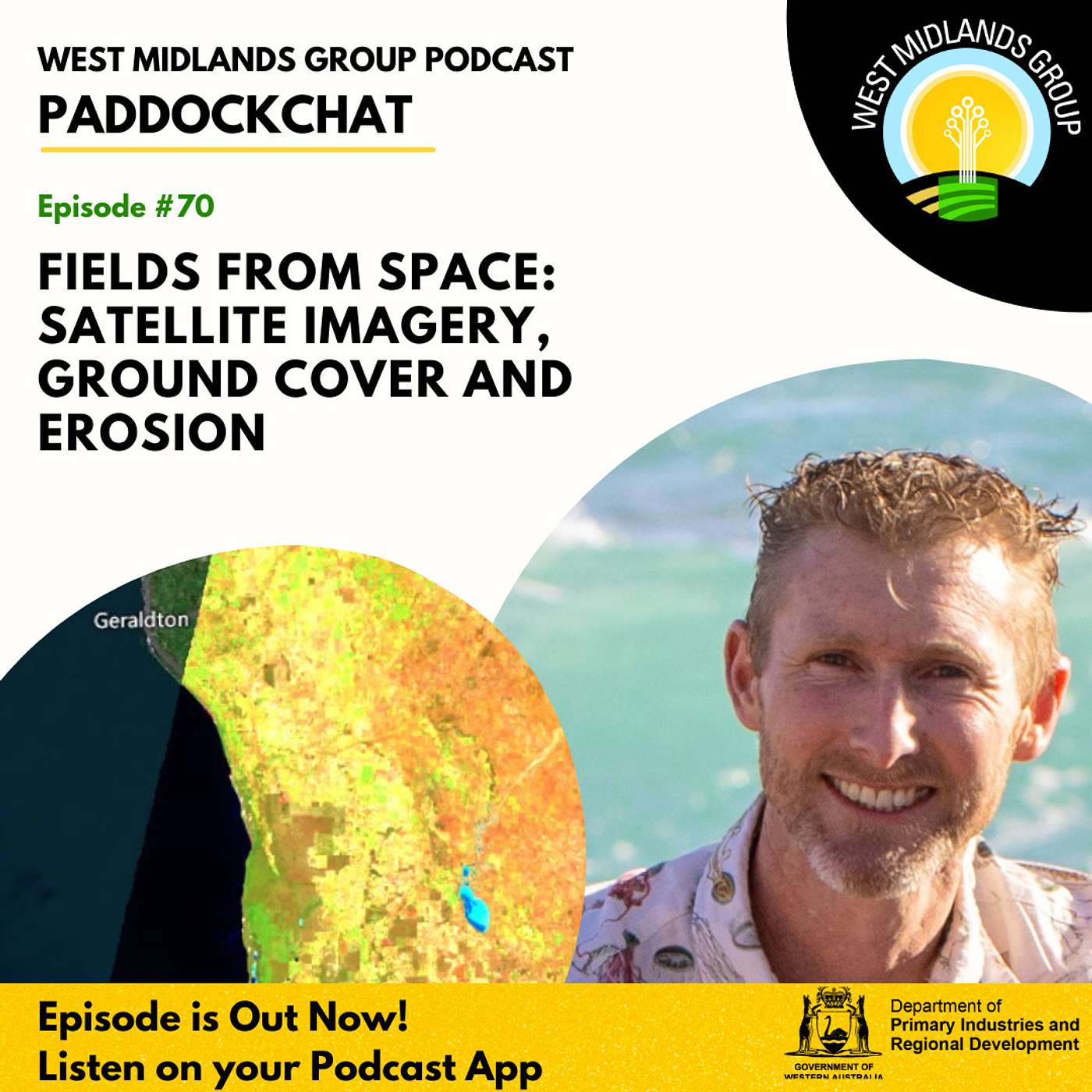 Fields From Space: Satellite Imagery and Ground Cover
16:53
Fields From Space: Satellite Imagery and Ground Cover
16:53
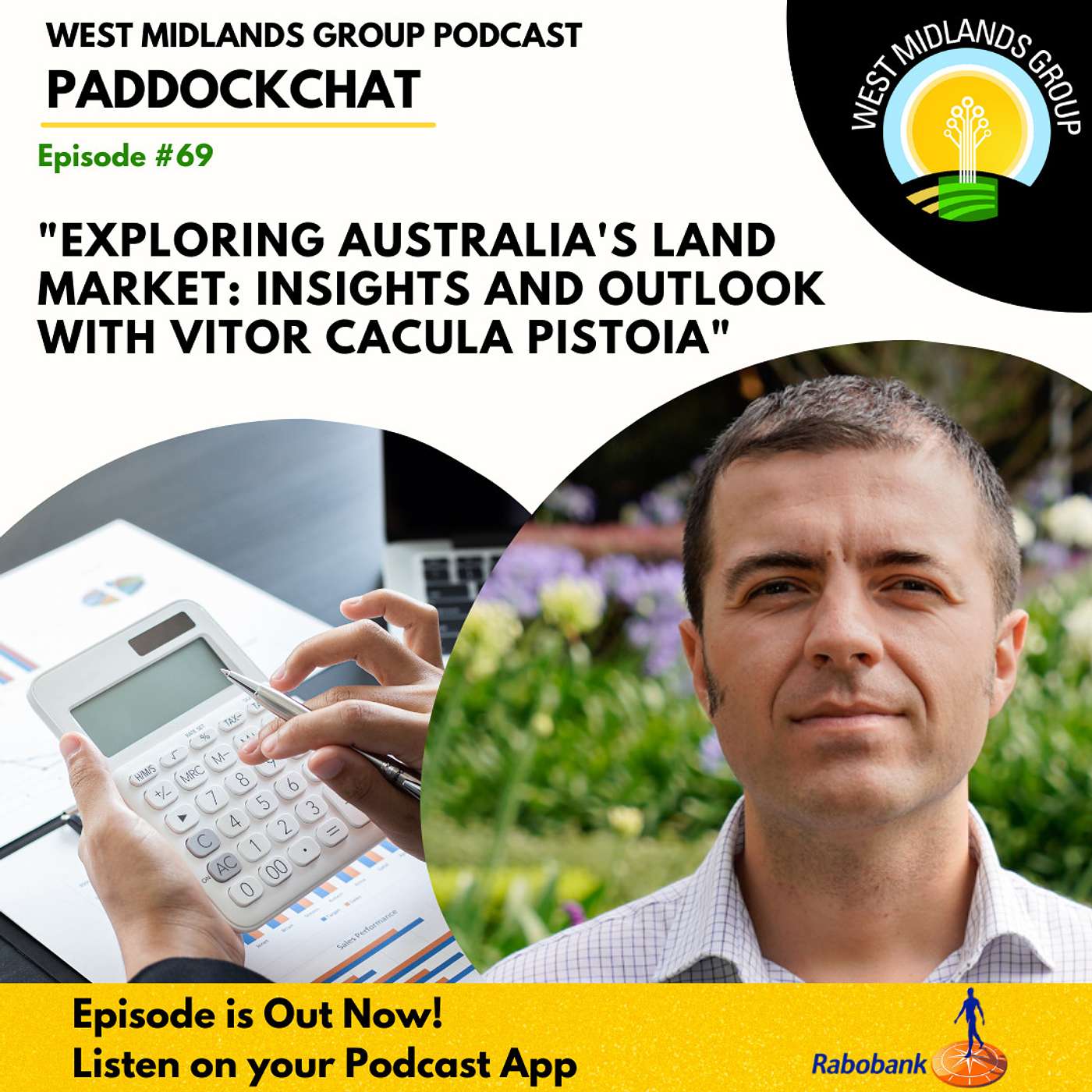 Exploring Australia's Land Market: Insights and Outlook with Vitor Cacula Pistoia
24:05
Exploring Australia's Land Market: Insights and Outlook with Vitor Cacula Pistoia
24:05
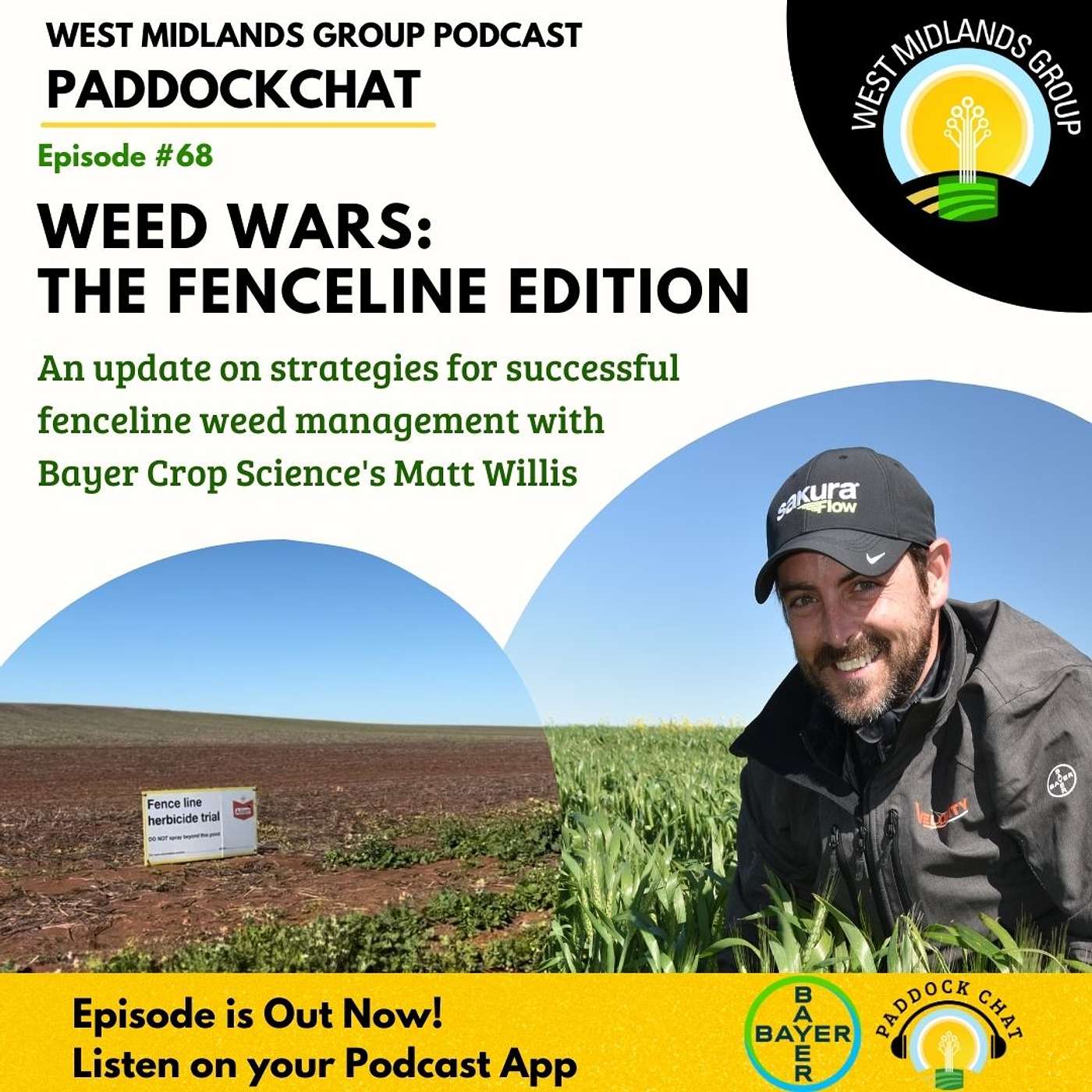 Weed Wars: The Fenceline Edition
14:39
Weed Wars: The Fenceline Edition
14:39
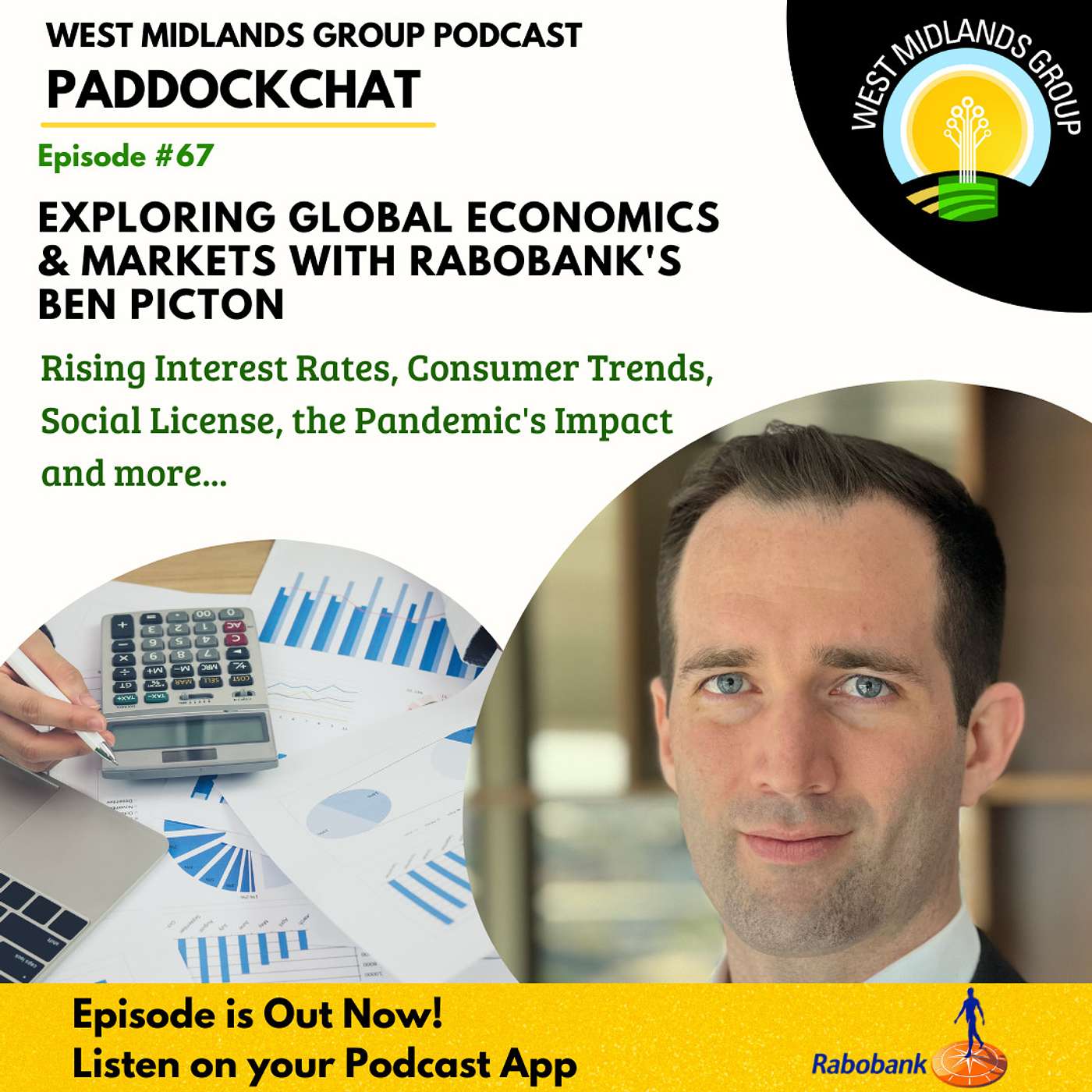 "Exploring Global Economics & Markets with Ben Picton: Rising Interest Rates, Consumer Trends, Social License, the Pandemic's Impact and more"
20:43
"Exploring Global Economics & Markets with Ben Picton: Rising Interest Rates, Consumer Trends, Social License, the Pandemic's Impact and more"
20:43
 Getting the 'NACC' for Growing Great Ground
20:01
Getting the 'NACC' for Growing Great Ground
20:01
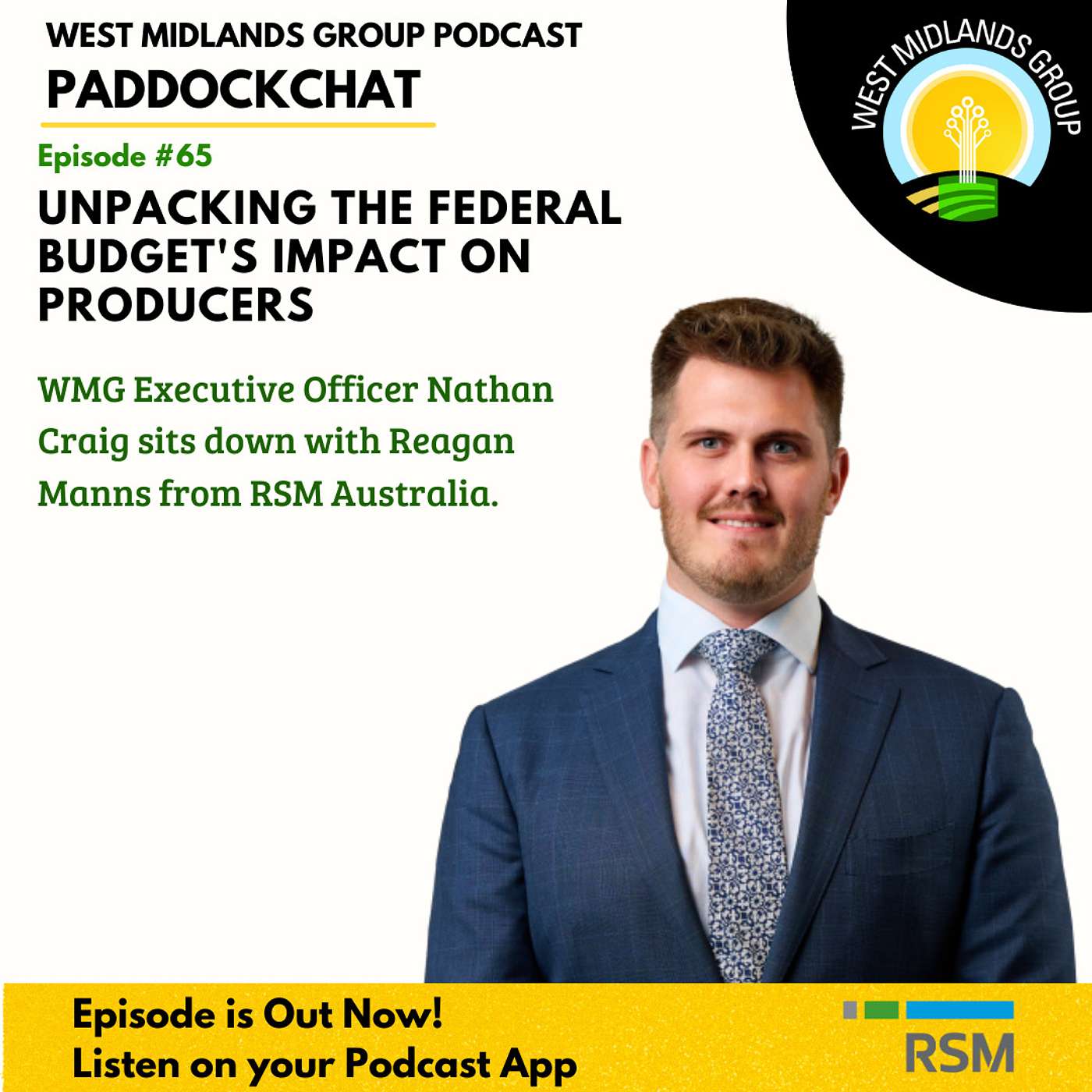 Unpacking the Federal Budget's Impact on Producers
9:51
Unpacking the Federal Budget's Impact on Producers
9:51
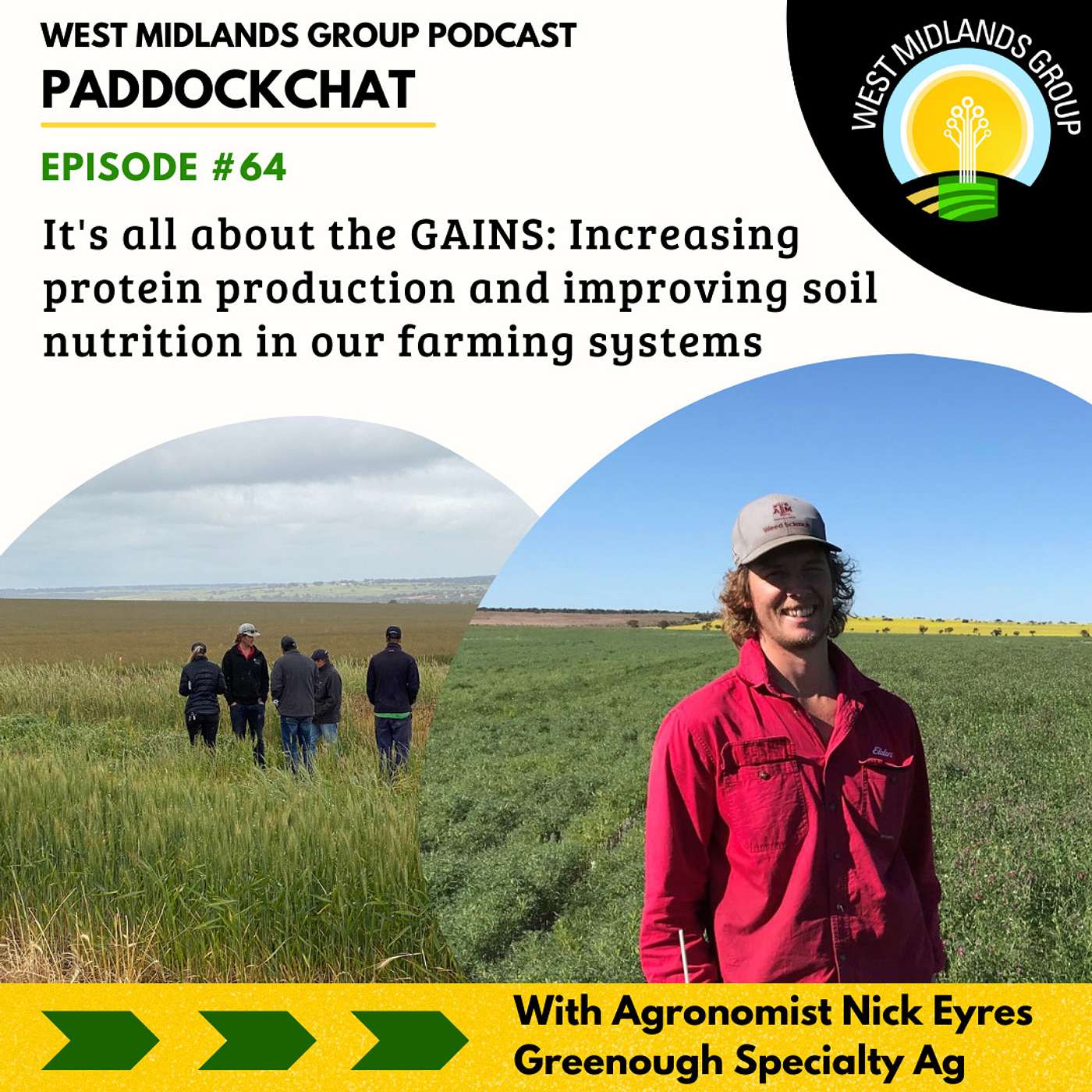 It's all about the GAINS: Increasing Protein Production and Improving Soil Nutrition in our Farming Systems
22:32
It's all about the GAINS: Increasing Protein Production and Improving Soil Nutrition in our Farming Systems
22:32
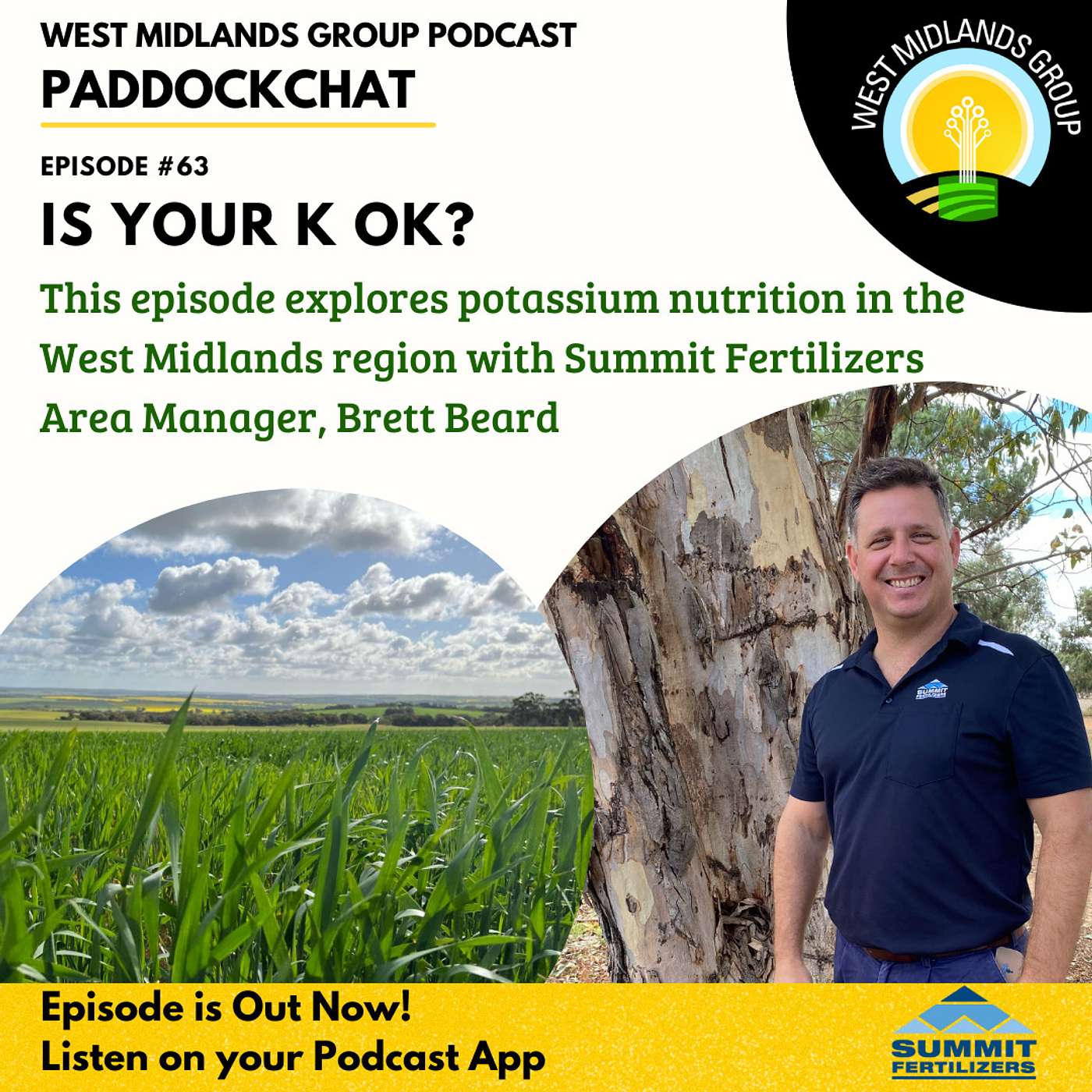 Is Your K OK? Potassium Nutrition Under the Spotlight
21:31
Is Your K OK? Potassium Nutrition Under the Spotlight
21:31
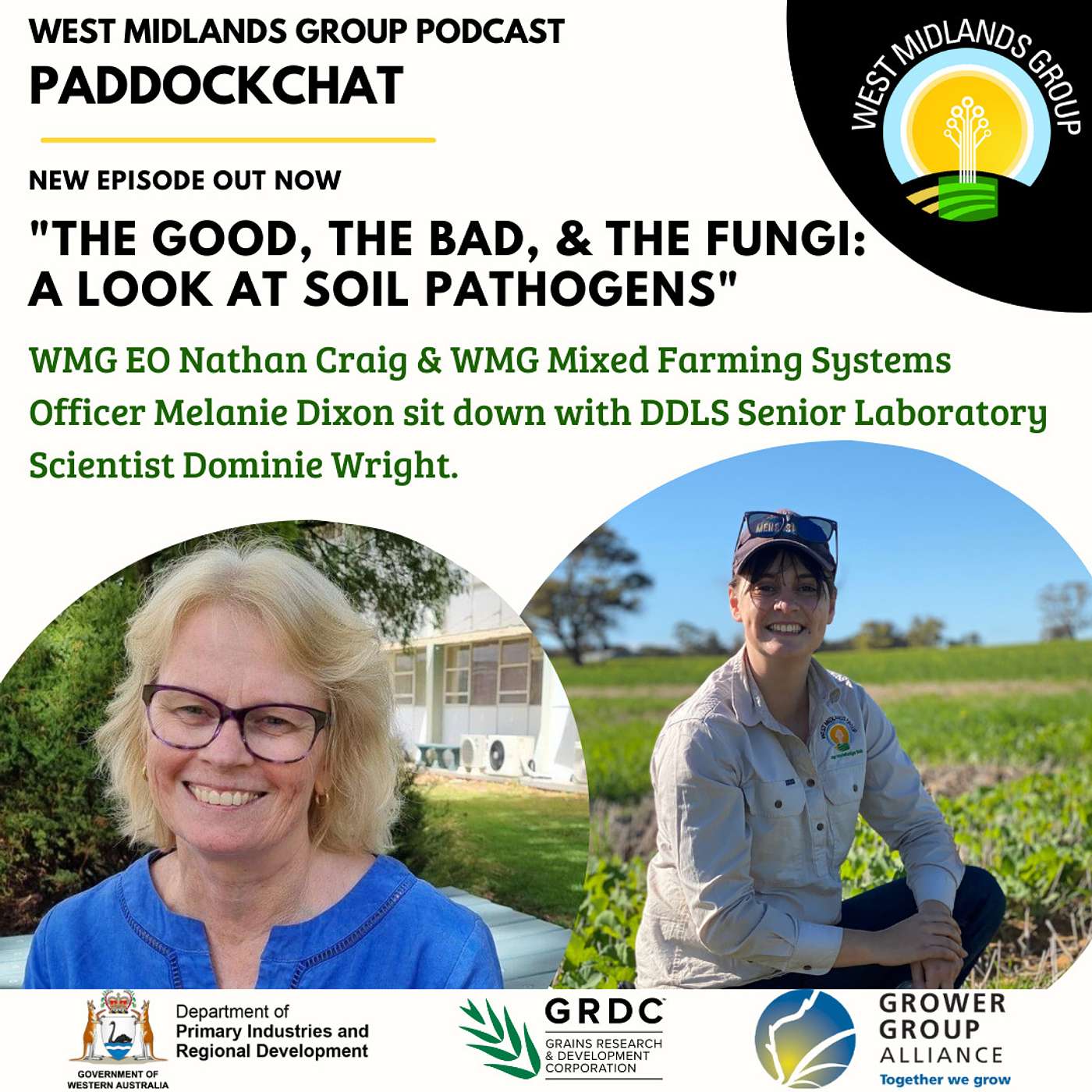 The Good, The Bad, & The Fungi: A look at Soil Pathogens
27:33
The Good, The Bad, & The Fungi: A look at Soil Pathogens
27:33
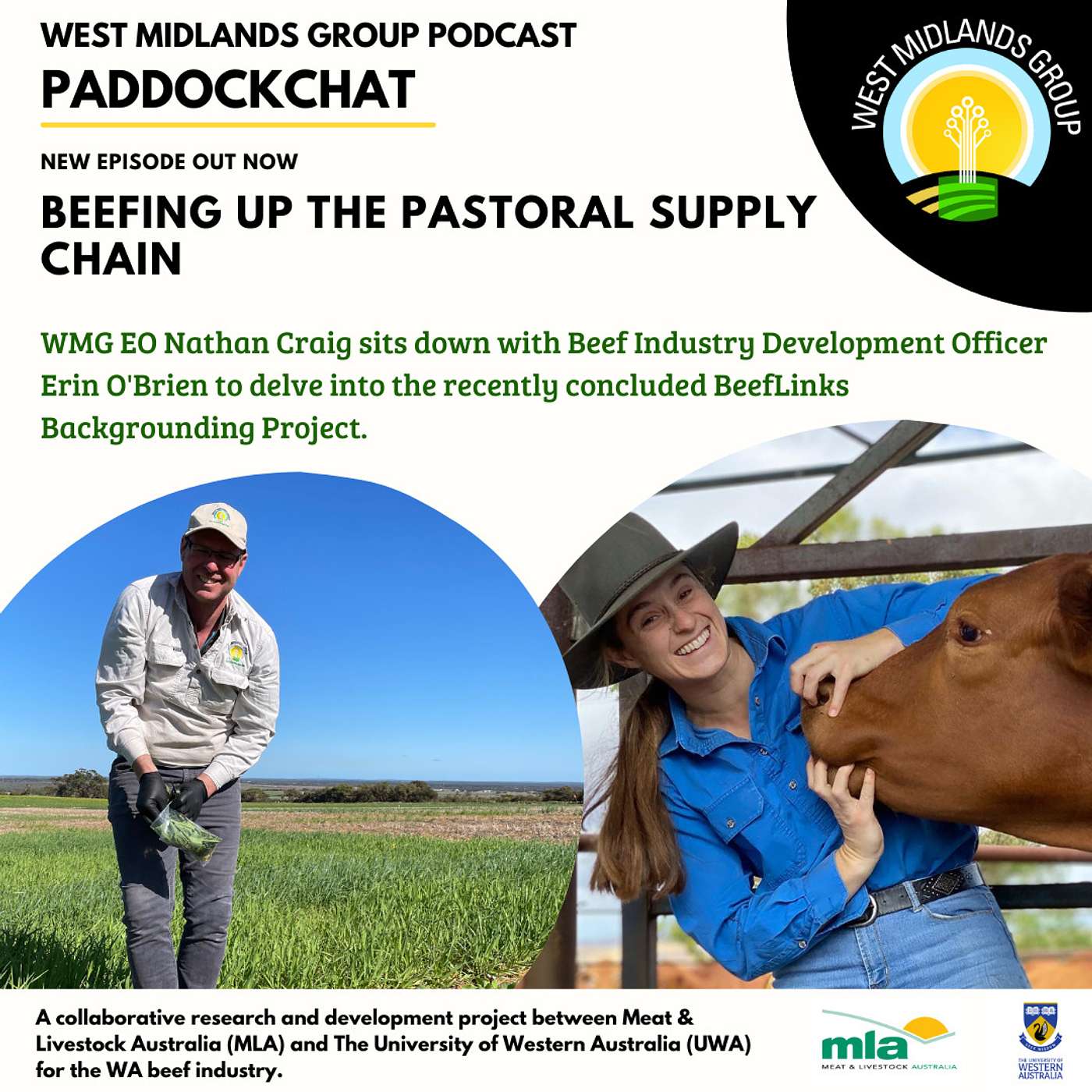 Beefing Up the Pastoral Supply Chain: Results from the BeefLinks Backgrounding Project
29:19
Beefing Up the Pastoral Supply Chain: Results from the BeefLinks Backgrounding Project
29:19
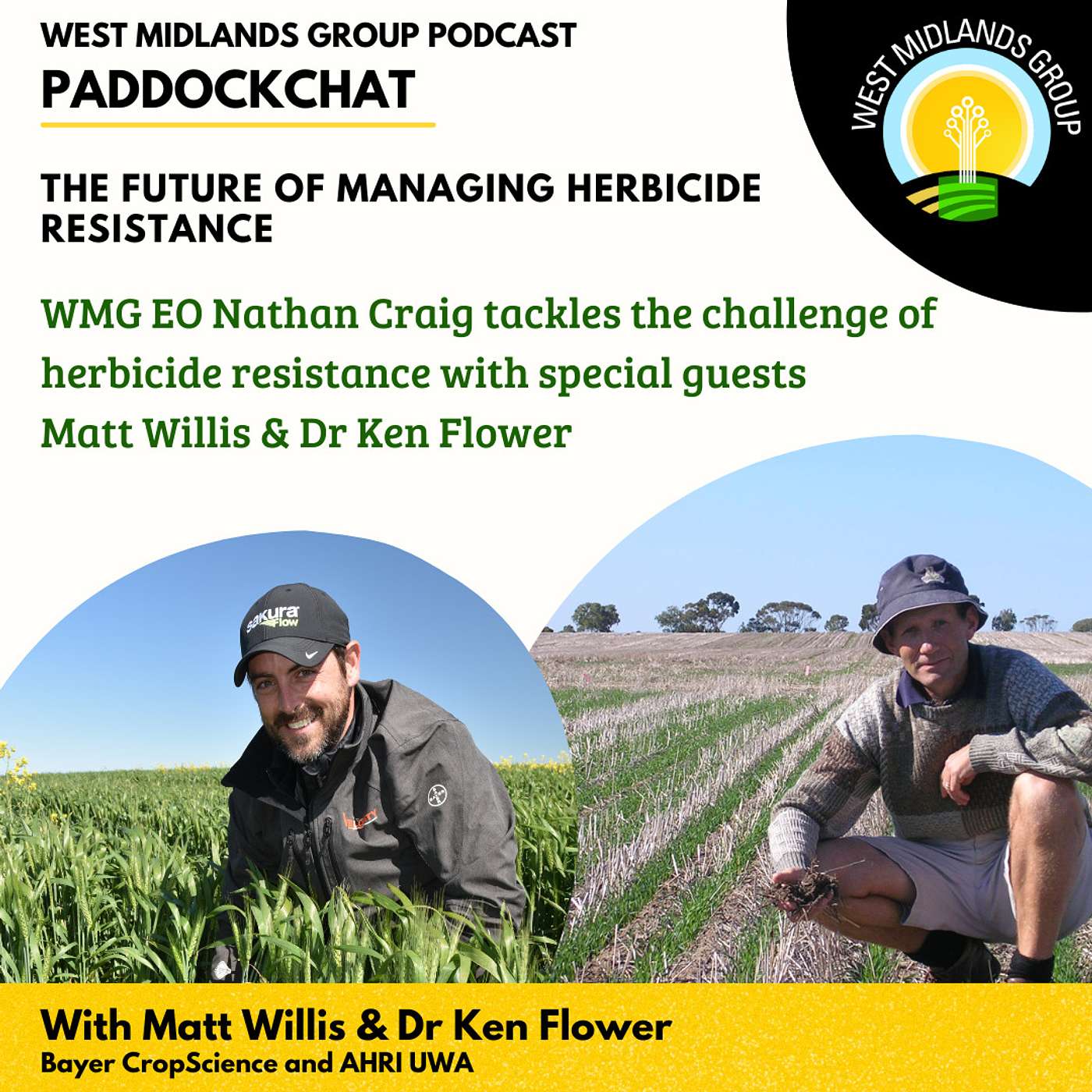 The Future of Managing Herbicide Resistance
23:15
The Future of Managing Herbicide Resistance
23:15
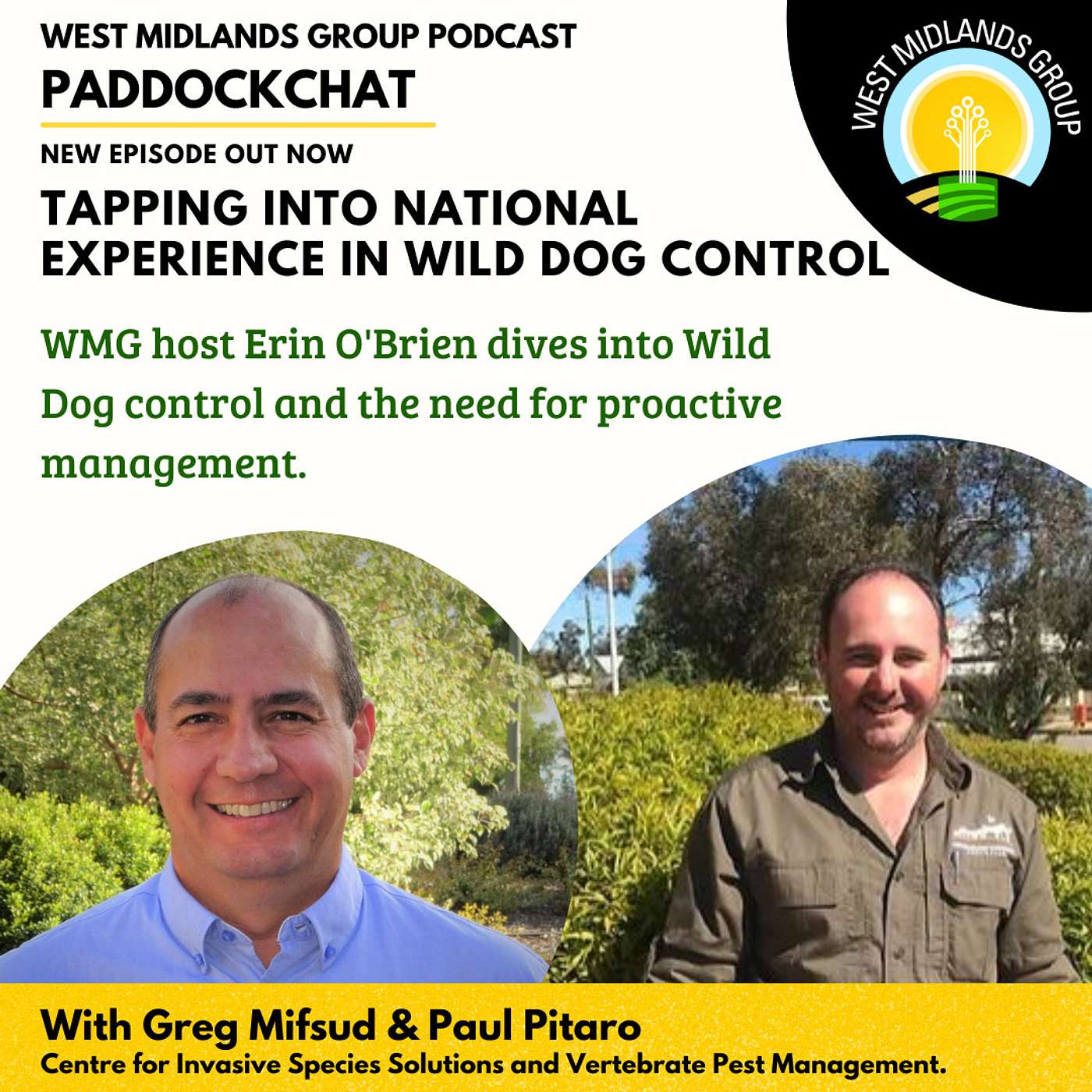 Tapping into National Experience in Wild Dog Control
20:59
Tapping into National Experience in Wild Dog Control
20:59
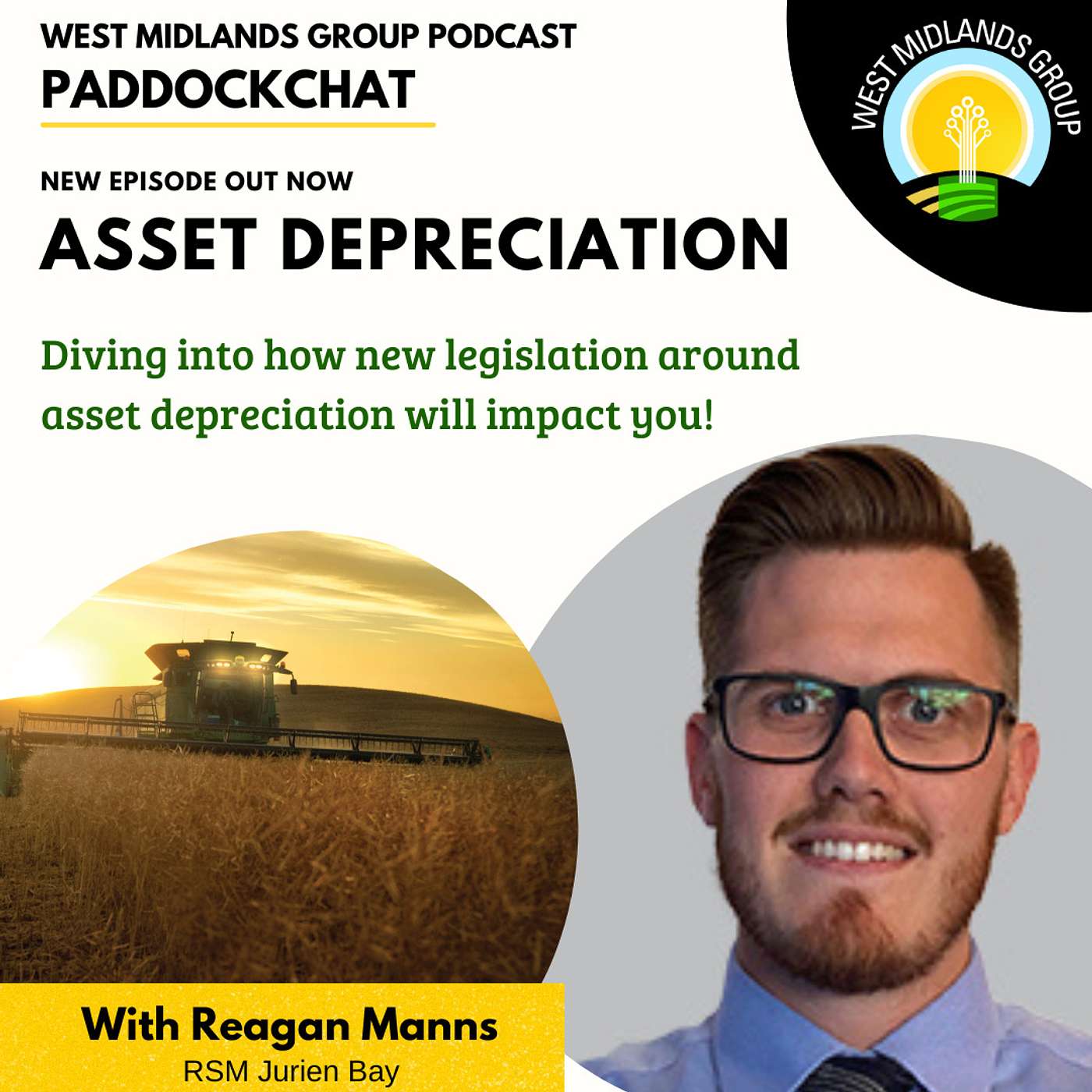 Changes to Asset Depreciation Legislation with RSM Australia
26:07
Changes to Asset Depreciation Legislation with RSM Australia
26:07
 Vocal Locals Helping to Break New Ground Part 2 FEAT. Jay Cummins & Tanya Lehman
11:30
Vocal Locals Helping to Break New Ground Part 2 FEAT. Jay Cummins & Tanya Lehman
11:30
 Vocal Locals Helping to Break New Ground Part 1 FEAT. Jay Cummins & Tim Paschke
13:30
Vocal Locals Helping to Break New Ground Part 1 FEAT. Jay Cummins & Tim Paschke
13:30
 Precision Ag as a Tool for Better Farm Decisions FEAT. Tanja Morgan & Felicity Turner
13:19
Precision Ag as a Tool for Better Farm Decisions FEAT. Tanja Morgan & Felicity Turner
13:19
 The Z to A of Precision Ag. FEAT. Jay Cummins & Peter Treloar
12:31
The Z to A of Precision Ag. FEAT. Jay Cummins & Peter Treloar
12:31
 Looking Forward, Not Back - Stabilising Sandy Pasture Paddocks With Low Groundcover FEAT. Geoff Moore
25:15
Looking Forward, Not Back - Stabilising Sandy Pasture Paddocks With Low Groundcover FEAT. Geoff Moore
25:15
 Weathering The Storm - Turning Bare Ground Into Stable, Productive Paddocks FEAT. Don Bradshaw
34:59
Weathering The Storm - Turning Bare Ground Into Stable, Productive Paddocks FEAT. Don Bradshaw
34:59
 Filling in the Gaps - Oversowing, Perennial Pastures & Grasshopper Control FEAT. Steele Rudd
29:14
Filling in the Gaps - Oversowing, Perennial Pastures & Grasshopper Control FEAT. Steele Rudd
29:14
 Biochar - The Potential, The PhD, The Project
34:01
Biochar - The Potential, The PhD, The Project
34:01